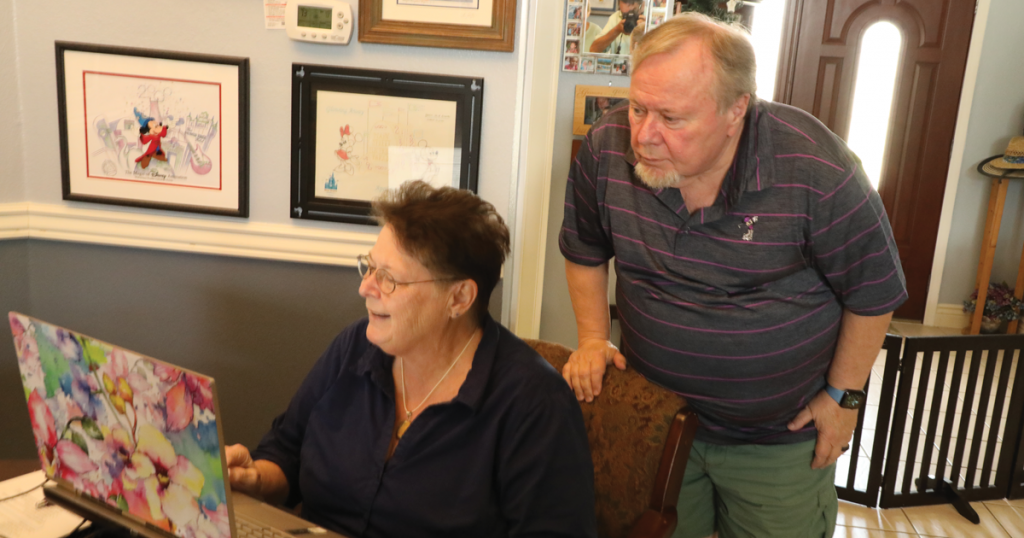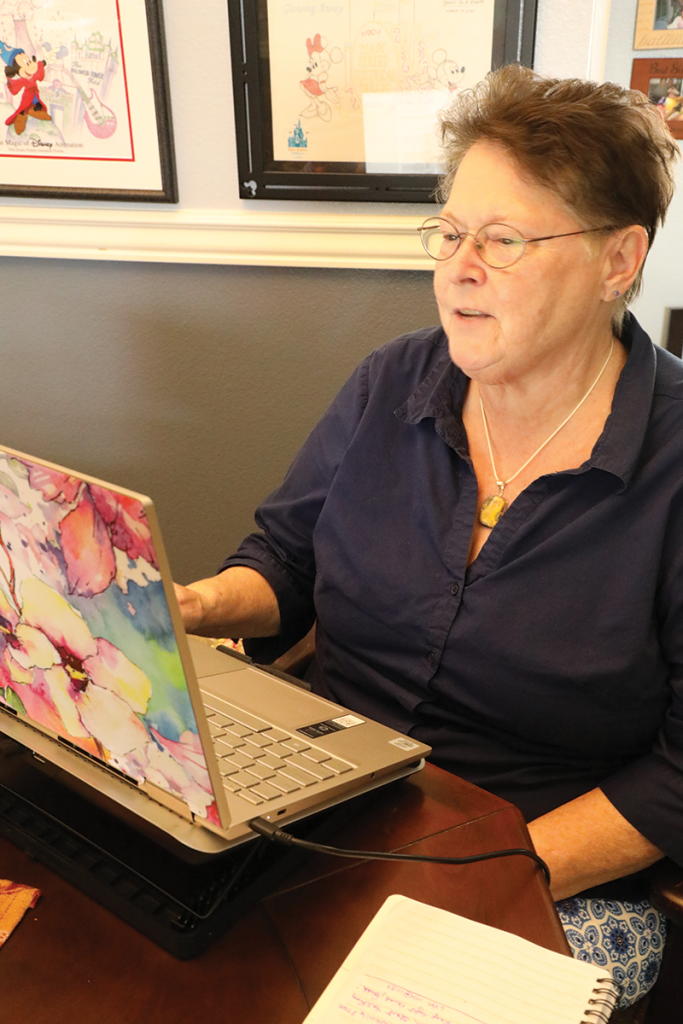Compassion Brigade
COVID Fighters Work Digital Magic
In this digital age, working from home hundreds, even thousands, of miles away has become commonplace. But the scope of what a group of retired Salvation Army Officers in Florida have done for countless families around Nashville, Tennessee—some 700 miles distant—is amazing.
The “Compassion Brigade” began in 2020 in the first few months of the COVID pandemic. The brainchild of Major Ethan Frizzell, Nashville Area Commander (NAC), the concept provides online, and telephone interviews scheduled at appointed times during the week between Salvationists and families devastated by lack of income due to the pandemic, threatening to usher homelessness.
“As the appointment time comes, we call them and go through the procedure,” says Major Brack Dodd, one of the “coaches” on board from his home computer near Orlando, Florida. “This eliminates paperwork through the mail and streamlines the process. By using PDF forms that our families can both fill out and digitally sign, the process is much easier.”
“It can be pretty intense,” admits Major Annette Dodd. “That is where the ‘compassion’ part of it comes in. We call ourselves ‘coaches’ because we coach them from start to finish. We even tell them that we are their ‘cheerleaders,’ encouraging them along the way. Sometimes we have to figuratively hold their hand through each step.”
Lt. Colonel Carol Busroe agrees, “The opportunity to minister remotely (from home) during this pandemic was a blessed challenge. Because of the visionary heart of compassion of the NAC, I was able to conduit financial assistance from government grants (CARES Act) to families suffering because of COVID-related income loss, and to provide conversations of hope to many who were frantic for help.”
Colonel Busroe was a supervisor of the group, herself taking a training course to become acclimated to the procedural ways and means of the NAC finance and social services departments. She then passed on to her group members how to help clients fill out the forms and obtain information to satisfy grant stipulations.

This program is actually in its third phase, made possible from as many grants entrusted to the Army. State and local governments provided the first two grants; particularly targeting COVID impacted families. This third grant is through HUD and is open to families desperate to avoid homelessness—although most are understandably affected by the economic woes brought on by the Coronavirus.
“The effects of this ministry are actually three-fold,” Major Annette explains. “First, of course, it is blessed relief to the affected families. Second, there are landlords and housing complexes that are paid up to six months of back rent, because they are struggling to stay afloat as well. But third, this helps the NAC staff as they now have this wonderful program in place to meet the monumental need in the five counties surrounding Nashville.”
Grant money is exclusive for back rent and some utilities. However, these coaches have found that the stories they encounter run the gamut.
“One man, 33, didn’t need rent or utilities,” Major Brack remembers. “But he was desperate for something as small as a bus pass so he could go to and from work. Nobody would help him. He was beside himself with worry. Now, this does not come under the grant, but I told Major Frizzell about it and he had his social services people work it out.”
On the other end of the spectrum is one family whose dad started a handyman business in January 2020. But COVID hit in March and the business floundered. The property owner tried working with them for months but was seriously considering having to file eviction orders.
“Making matters worse, a few months later their daughter was diagnosed with brain cancer,” Major Annette adds. “No insurance, no money coming in—they were way past desperate.”
Major Frizzell arranged for the corps nearest this family to take them under their wing. Captains Doug & Jane Monroe (Nashville Berry Street Corps) are doing a wonderful job shepherding them, Dodd says.
On the application there is a line for prayer requests. Another line asks if a support group is in place for them. If the answer is “no,” and they are open to having someone from a nearby Salvation Army Corps look in on them, that is arranged.
On average, these “coaches” speak with 4-5 families each day, with 45 minutes allotted for each visit. But often the interview goes for hours, out of necessity. Each evening, Compassion Brigade members meet on Zoom to troubleshoot and conduct strategy planning.
“The Compassion Brigade brought forth beautiful testimonies of prayer and promise during the pandemic of uncertainty and fear,” says Major Ethan Frizzell. “It has been an honor to work with Salvationist Saints in meeting the holistic needs of our neighbors. I can only imagine the potential of future services by extending the compassion of retired officers. We are deeply thankful, and great joy for us has been the testimony of retired officers that were moved by faith in action and love’s response from our families.”
A few corps in the Southern Territory have reached out to NAC to apply this concept in their communities, and perhaps even to utilize the dependable resources of retired officers—even a thousand miles away.
For countless metropolitan Nashville families, this could be the “donut girl” (post-World War One) public relations boon enjoyed by the Army for generations.
At least in middle Tennessee.







